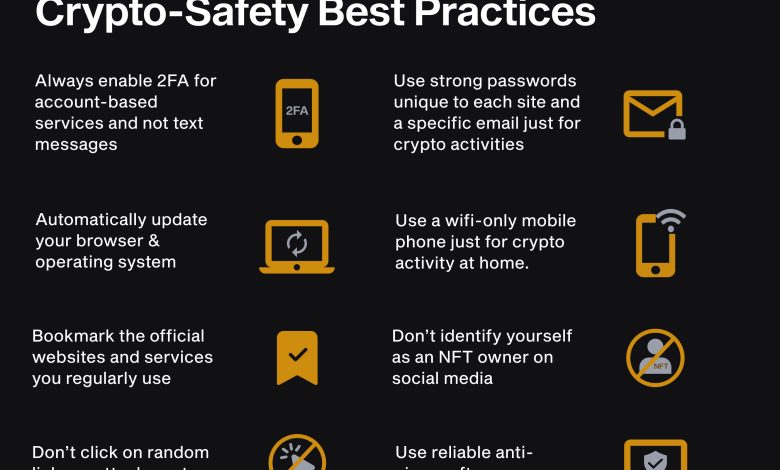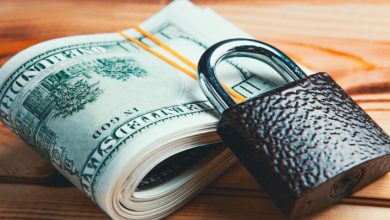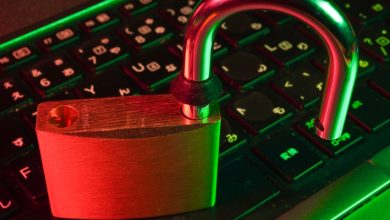Protecting Your NFTs: Security Tips

- Understanding the value of NFTs in the digital world
- Common security threats faced by NFT owners
- Best practices for securing your NFT collection
- Choosing the right wallet for storing your NFTs
- Tips for creating strong passwords for NFT platforms
- The importance of staying informed about NFT security trends
Understanding the value of NFTs in the digital world
NFTs, or non-fungible tokens, have gained significant attention in the digital world due to their unique properties. These digital assets represent ownership of a specific item or piece of content, such as art, music, or collectibles, using blockchain technology. The value of NFTs lies in their scarcity, authenticity, and immutability, making them highly sought after by collectors and investors alike.
NFTs have revolutionized the way digital assets are bought, sold, and traded online. They provide a level of security and transparency that was previously unattainable in the digital space. By leveraging blockchain technology, NFTs ensure that each token is one-of-a-kind and cannot be replicated or tampered with.
As the popularity of NFTs continues to grow, it is essential for individuals to understand the value they hold in the digital world. By recognizing the unique properties of NFTs, users can better protect their investments and ensure the security of their digital assets. Whether you are a creator looking to tokenize your work or a collector interested in purchasing NFTs, it is crucial to be aware of the benefits and risks associated with these digital assets.
Common security threats faced by NFT owners
As NFTs continue to gain popularity, it is important for owners to be aware of the common security threats they may face. By understanding these risks, NFT owners can take proactive measures to protect their digital assets. Some of the most prevalent security threats faced by NFT owners include:
- Phishing Attacks: Phishing attacks are a common threat in the digital world, where scammers attempt to trick individuals into revealing sensitive information such as private keys or passwords. NFT owners should be cautious of unsolicited emails or messages asking for personal information.
- Malware: Malware can infect devices and steal sensitive information, including NFTs. It is essential for NFT owners to use reputable antivirus software and avoid clicking on suspicious links or downloading unknown files.
- Smart Contract Vulnerabilities: Smart contracts are used to facilitate NFT transactions, but they can also be vulnerable to exploitation by hackers. NFT owners should conduct thorough research on the smart contracts they interact with and ensure they are secure.
- Crypto Exchange Hacks: NFT owners who store their digital assets on cryptocurrency exchanges are at risk of hacks and security breaches. It is recommended to use hardware wallets or cold storage solutions to securely store NFTs.
- Social Engineering: Social engineering tactics are often used to manipulate individuals into divulging sensitive information. NFT owners should be cautious of social engineering attempts and avoid sharing personal details online.
By being aware of these common security threats and taking proactive steps to safeguard their NFTs, owners can minimize the risk of falling victim to cyber attacks and protect their valuable digital assets.
Best practices for securing your NFT collection
When it comes to securing your NFT collection, there are several best practices you can follow to protect your valuable assets. By implementing these security tips, you can minimize the risk of unauthorized access and potential loss of your NFTs.
- Use a secure wallet: Store your NFTs in a secure wallet that offers robust encryption and multi-factor authentication to prevent unauthorized access.
- Enable two-factor authentication: Add an extra layer of security to your accounts by enabling two-factor authentication, which requires a second form of verification in addition to your password.
- Be cautious of phishing scams: Be wary of unsolicited emails or messages asking for your personal information, as these could be phishing attempts to steal your NFTs.
- Keep your private keys safe: Your private keys are essential for accessing and transferring your NFTs, so make sure to keep them secure and never share them with anyone.
- Regularly update your security measures: Stay up to date with the latest security updates and patches for your wallet and other tools to protect against new threats.
By following these best practices for securing your NFT collection, you can safeguard your assets and enjoy peace of mind knowing that your valuable digital assets are protected from potential threats.
Choosing the right wallet for storing your NFTs
When it comes to protecting your NFTs, choosing the right wallet is crucial. There are several options available, each with its own set of features and security measures. It’s important to do your research and select a wallet that meets your needs and provides the level of security you require.
One popular option is a hardware wallet, which is a physical device that stores your NFTs offline, making them less vulnerable to hacking or theft. Hardware wallets are considered one of the most secure options available and are a good choice for those looking to keep their NFTs safe for the long term.
Another option is a software wallet, which is a digital wallet that can be accessed online or through a mobile app. While software wallets are convenient and easy to use, they may not offer the same level of security as hardware wallets. It’s important to choose a reputable software wallet provider and take steps to secure your wallet with strong passwords and two-factor authentication.
Ultimately, the best wallet for storing your NFTs will depend on your individual needs and preferences. Whether you choose a hardware wallet or a software wallet, be sure to take the time to research your options and select a wallet that offers the security features you need to protect your valuable NFTs. By taking the time to choose the right wallet, you can help ensure that your NFTs remain safe and secure for years to come.
Tips for creating strong passwords for NFT platforms
When it comes to protecting your NFTs, creating strong passwords for NFT platforms is crucial. Here are some tips to help you enhance the security of your accounts:
- Use a combination of uppercase and lowercase letters, numbers, and special characters in your password.
- Avoid using easily guessable information such as your name, birthdate, or common words.
- Make sure your password is at least 12 characters long to increase its complexity.
- Consider using a password manager to generate and store unique passwords for each NFT platform you use.
- Enable two-factor authentication whenever possible to add an extra layer of security to your accounts.
By following these tips, you can significantly reduce the risk of unauthorized access to your NFTs and protect your valuable digital assets from potential threats.
The importance of staying informed about NFT security trends
Staying informed about NFT security trends is crucial in protecting your valuable digital assets. As the NFT market continues to grow, so do the threats posed by cybercriminals looking to exploit vulnerabilities in the system. By keeping up to date with the latest security trends, you can stay one step ahead of potential threats and safeguard your NFTs from unauthorized access or theft.




